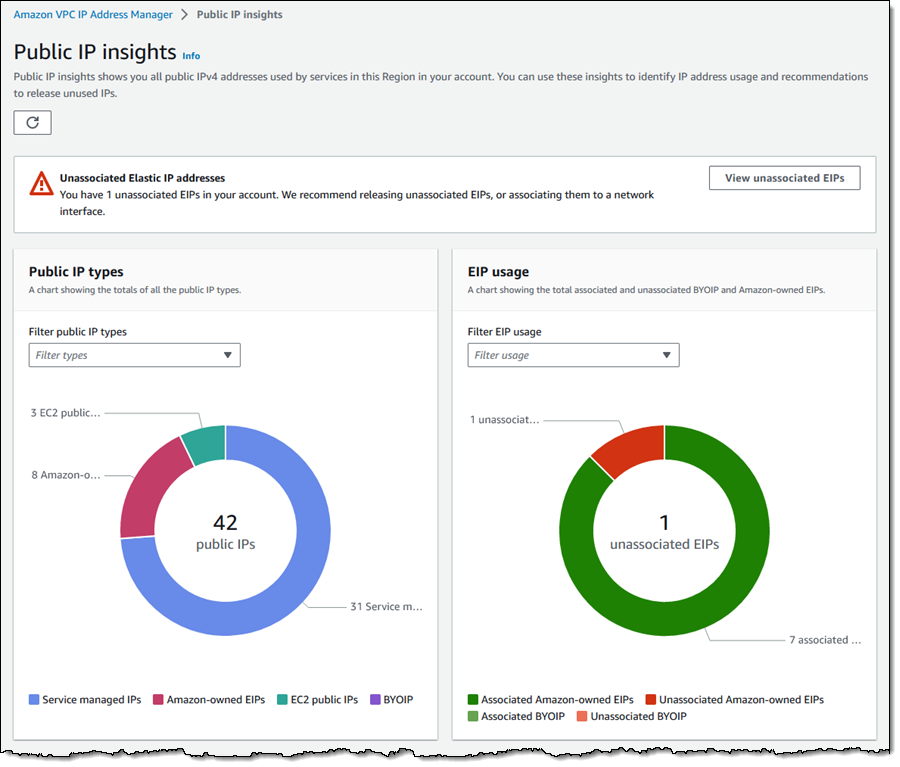The big picture: In the world of tech, IP addresses are akin to digital real estate. Just like in the physical realm where urban sprawl is an issue, the IPv4 territory is becoming increasingly crowded. There is a finite number of these 32-bit internet IDs available, and demand far exceeds supply as our online presence balloons.
Amazon Web Services (AWS) flipped the switch on its new IPv4 address pricing scheme on February 1 as it had announced months prior. The new policy means customers will pay $0.005 per public IPv4 address per hour, a seemingly negligible amount at first glance. But dig deeper and you'll find a billion-dollar revenue stream emerging for Amazon's cloud division.
The tech giant first teased the pricing change last summer, positioning it as a necessity given skyrocketing demand and administrative costs for IPv4 addresses. After all, the 32-bit protocol is tapped out at around 4.3 billion unique IDs. That may sound like a lot but in an era of proliferating smart devices, we indeed are running out.
And as IDs run out, associated costs have soared. "The cost to acquire a single public IPv4 address has risen more than 300% over the past five years," the company stated, urging users to transition to IPv6 with its vast 128-bit address pool.
But IPv4 remains widespread, and Amazon holds a trove of the sought-after addresses. An analysis by Border0 estimated Amazon controls nearly 132 million public IPv4s. Crunching some numbers, Border0 found out their eye-watering valuation – around $4.6 billion based on today's average IPv4 price tag of $35.
Of course, Amazon cannot simply cash out and offload that internet real estate. However, it can generate recurring revenue by billing active users. Border0 estimates that 30% of those IPs (79 million) are linked to income-generating AWS services. Quick calculations reveal over $1 billion per year in projected revenue from this policy adjustment. Border0 concludes that Amazon could be earning between $400 million to $1 billion annually with these new prices. Not bad at all.
The pricing upheaval underscores profound shifts in internet infrastructure. Managing that finite pool is getting trickier and costlier. Meanwhile, benefits of IPv6 (beyond its galactic address count) include supposed speed boosts and improved security.
For instance, this old blog post from Meta (Facebook back then) claimed IPv6 optimizations accelerated their site by 10-15%. And when properly implemented, the newer protocol also protects against common IPv4 vulnerabilities. Yet as of 2023, IPv4 is still widely used globally, even though its address resources are nearly exhausted.
So while some may decry the price hikes, it's fair to think that Amazon's carrot-and-stick approach may eventually push laggards to IPv6, paving the way for an internet sans address shortages.
Image credit: rawpixel

